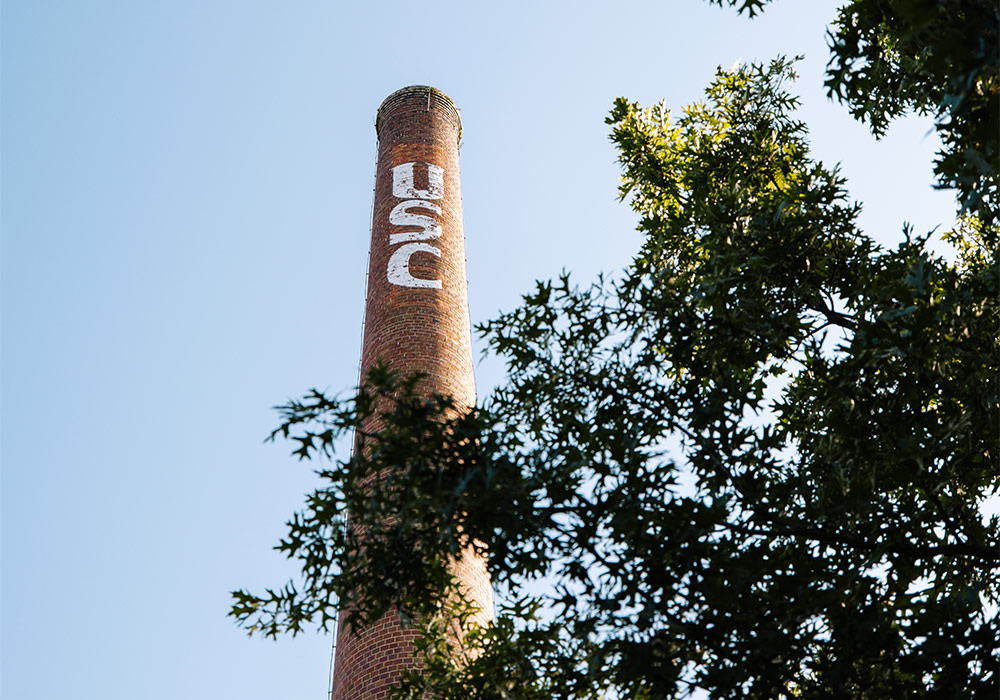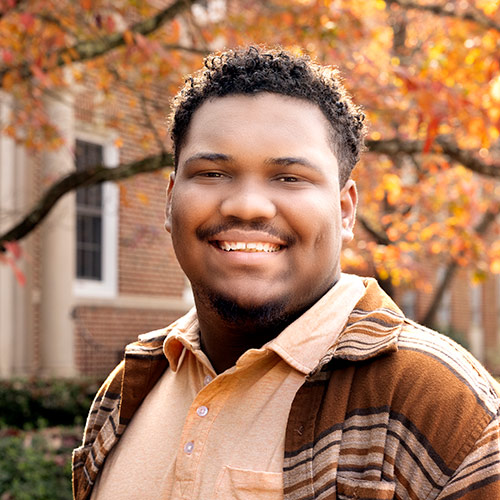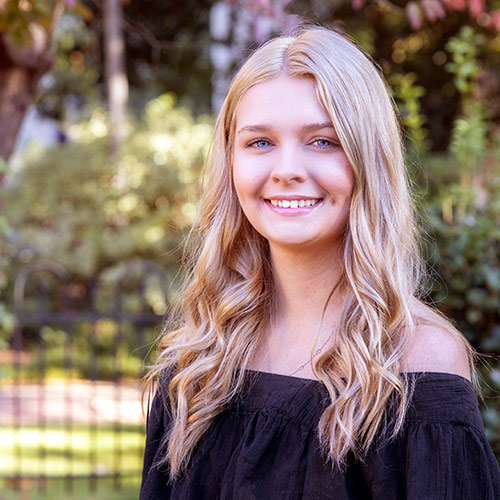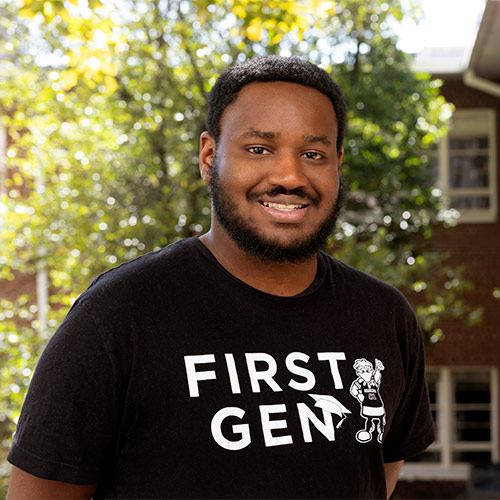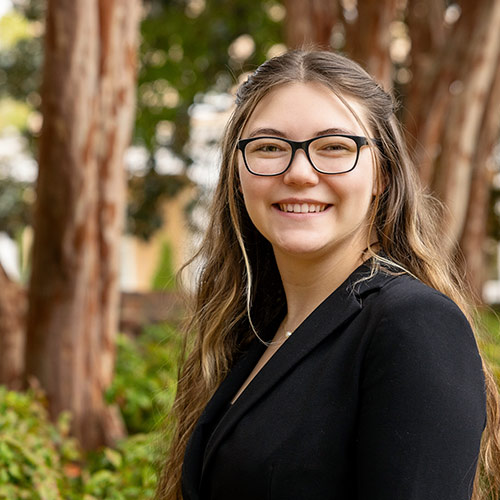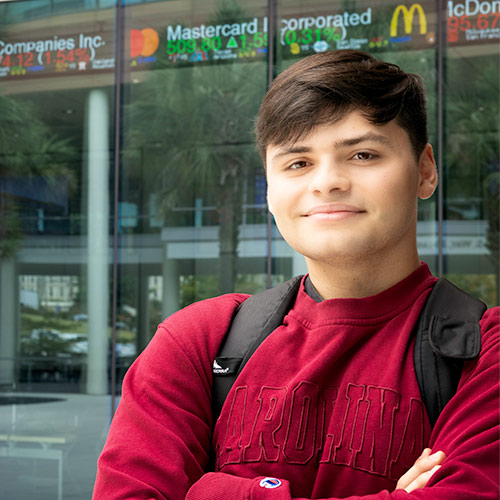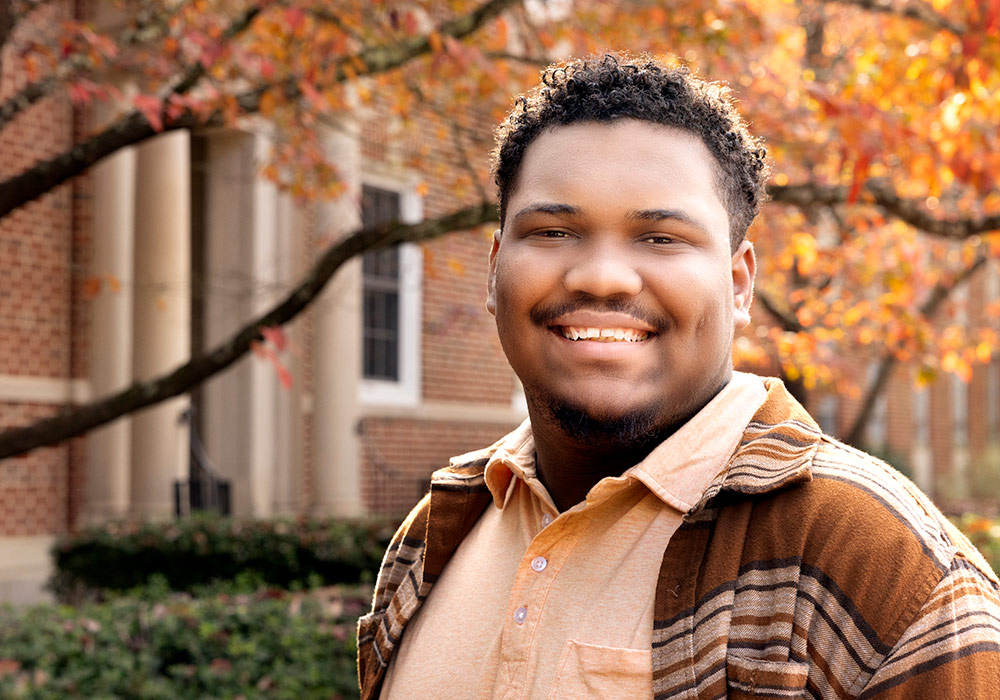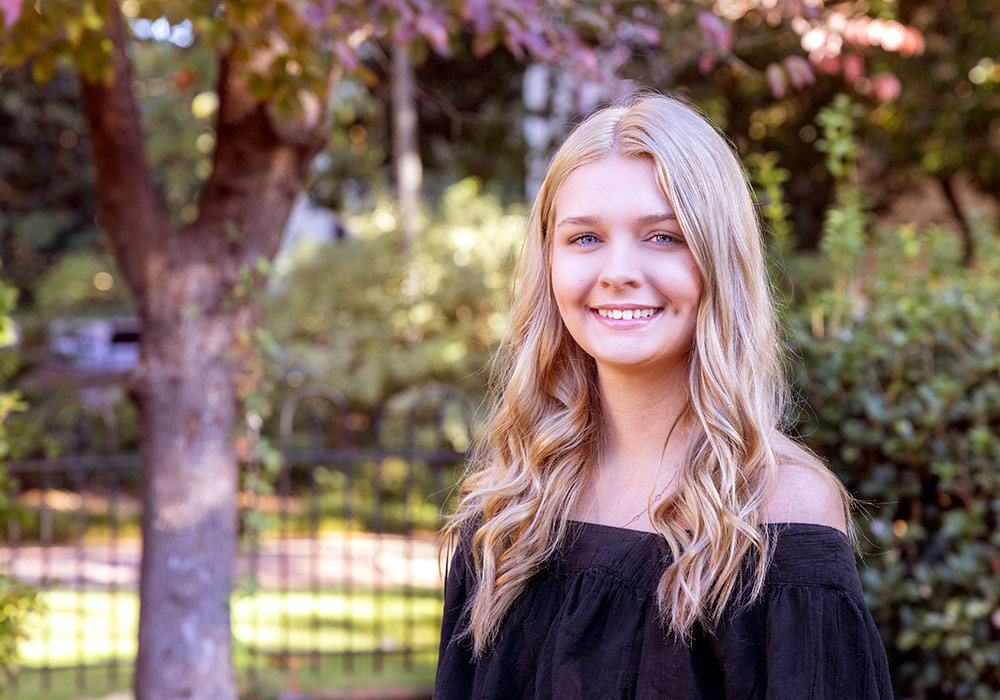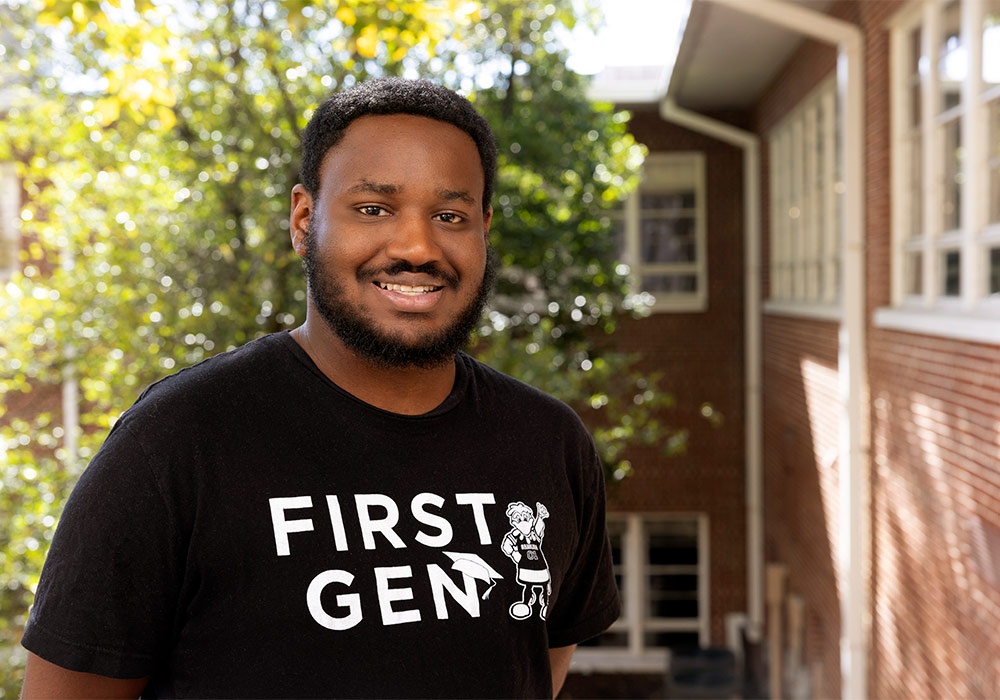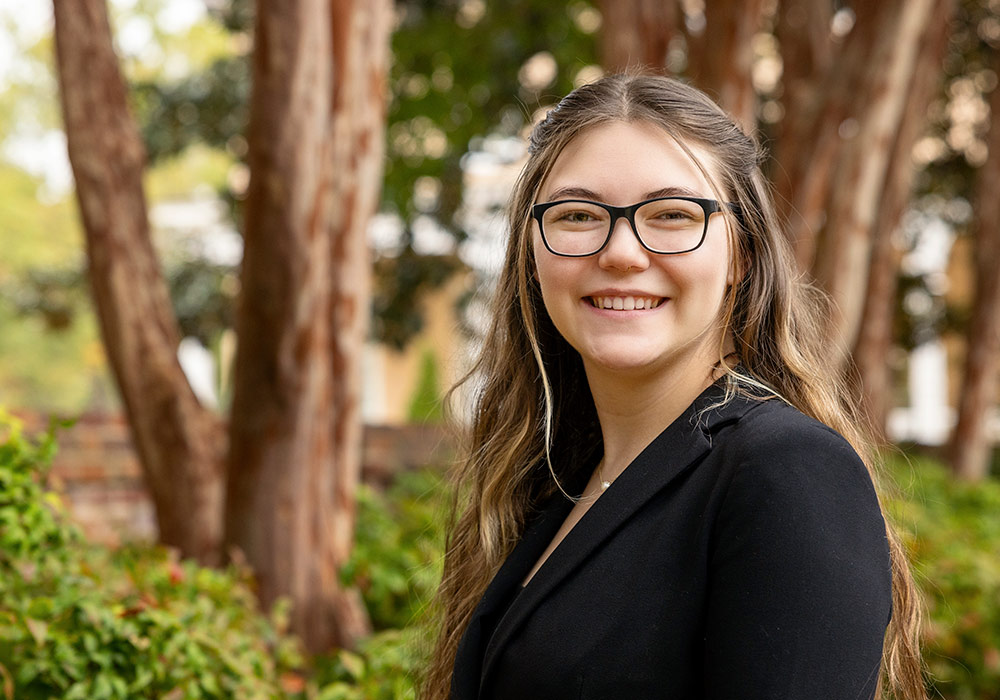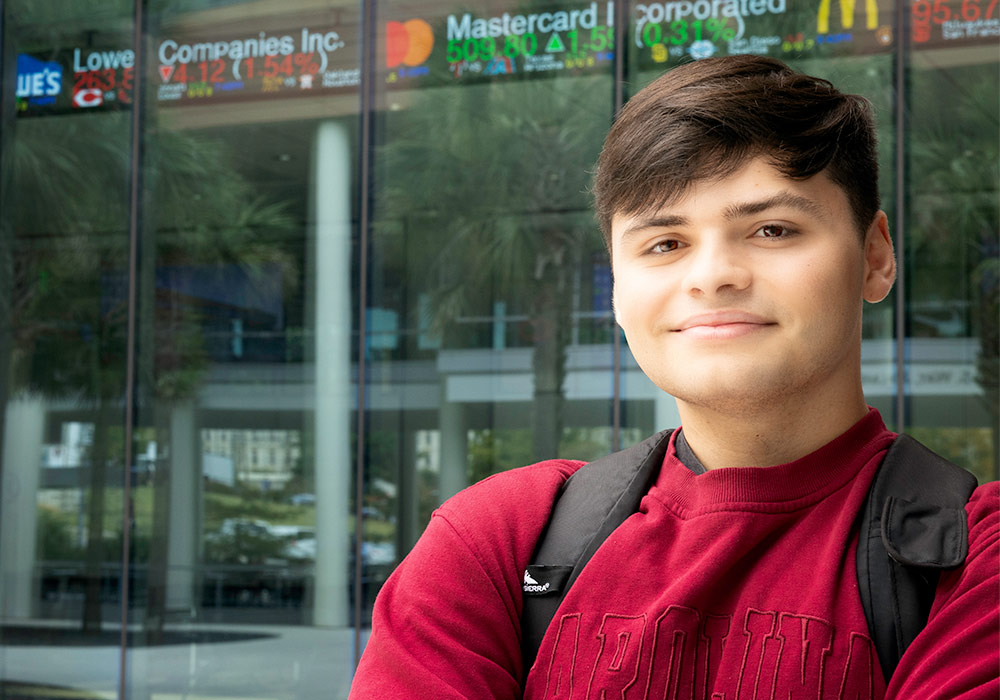For many, college is a critical first step toward building a brighter future. But for students whose parents haven’t attended a four-year college, taking that step can be equal parts thrilling and daunting, with no road map to chart the way ahead.
At the University of South Carolina, where one in five students identify as first-generation, the university is doing more than ever to help this important and growing population flourish with resources and support.
As the university marks the celebration of First-Gen College Celebration Week, we sat down with first-generation students to talk about their experiences at USC and the people and opportunities that have shaped their successes.
Meet our first-gen students
Born in Chicago, Myron Harris has lived in Conway, South Carolina, for over a decade — long enough that he confidently says, “I think I’m a full South Carolinian now.” He is a sophomore pre-law criminal justice and criminology major hoping to pursue the Joseph F. Rice School of Law’s dual Master of Public Administration and juris doctorate program.
I applied everywhere because I didn’t know where I wanted to go. I was between USC, Duke and Clemson. Clemson is in the middle of nowhere, Duke didn’t give me as much money as USC and I liked USC’s campus better, so I decided to go to USC. I’ve had an amazing time, even from the first week.
I couldn’t have chosen a better college as far as social life. I met so many people at First Night Carolina. When I look back at videos on my phone, I didn’t realize how many people from the videos I actually know now.
TRIO was the first community that I found on campus. They introduced me to 200 people at a mentor meal; it was like the second day into school. After seeing all those people that have something in common, I would just go talk to them.
Communities like AAAS (Association of African American Students) — they’ve helped me so much. I’m not at an HBCU, so it’s a little harder to get connected with the cultural side of being a college student. Organizations like EmpowerMENt and Brothers of Nubian Descent, which are African American male organizations, and AAAS and NAACP have allowed me to meet African Americans who want to be involved and make a difference.
In high school, I liked student government, so I joined Freshman Council here and kept moving up. I’m deputy secretary of inclusion and equity. I come up with events and initiatives to reach marginalized and minority groups on campus. We’re trying to get a firmer grip on inclusion of (groups like) vets and the LGBTQ+ community. Hopefully it spreads toward the Columbia community.
Mrs. Paulia (Williams, Gamecock Guarantee coordinator) and Mr. Patrick (Wilson, TRIO advisor) helped me so much, coming in as a first-gen student. Dr. (Pinkney) Epps (Assistant TRIO Director) has been a mentor to me and he has such a wealth of knowledge that allows me to be more successful. I knew nothing and they helped me. Now I’m able to be part of seven different clubs and be successful in it all.
One of my greatest experiences was jumping in the fountain (to celebrate the 2023 women’s college basketball championship victory). I was in a full suit. I went to watch the game after I had an interview, and I wanted to get into the fountain because everyone else was getting in. I had to throw the suit away. It was not a good look, but it was a good time. Everyone was excited, jumping around.
I honestly don’t know what type of law I want to do. I swear, every day it changes. One of my end goals is to be a judge or the city administrator for my town of Conway.
Kaylee Blewer was raised in St. George, South Carolina, a small town approximately halfway between Charleston and Columbia. She is a junior psychology major minoring in counseling education.
Two of my aunts went to USC. I wanted to follow in their footsteps. My family are really big fans of USC, and I thought I would make my parents proud.
I struggled at first coming here. It’s a lot at the beginning — having to be more in control of your education, time management. You’re the only one who can do all the work. My anxiety was through the roof because I was the only one from my high school to come here and I didn’t know anyone. It’s a huge school to try to navigate and figure out.
I thought that I was doing something wrong because I was learning certain things but couldn’t get other things to stick. I started talking to other people. Finding people who are similar to you helps a lot.
My freshman year, I had a mentor through the TRIO program. She would help me and text me and call me all the time, ask me questions and help me register for classes and all that. The Student Success Center helped a lot. I struggled with writing. I was writing in the wrong types of style, so the Writing Center helped me figure it out.
I come from a really small town. Coming to this campus, I met more people from different ethnicities, and I’m learning that everyone else has different experiences from me. Learning from everyone else about what they’ve been through is really impactful because it opens your eyes.
I changed my major. I started off in public health, but I was lost. Then I took a psychology class. It was like, I get this and I love to read about it. When I read about family counseling, I thought, that’s what I want to do. It feels like a calling.
I worked in the mail room on campus last semester. Everyone would come to work every day and talk and help each other out — if we had to do homework, somebody would help. It just felt like a community.
I’ve been working (in the First-Generation Center) all summer. It’s been really fun to watch — how much they care and how much they’re all doing. The school cares so much for first-generation students.
Having that community for first-generation students to connect with each other will be really impactful because you can meet people who are having similar experiences to you. They don’t have to be your best friends, but you can have a friend there to text when you’re going through something. Maybe they’re going through the same thing, and that can be impactful.
Dillon native Curtis Pernell earned his degree in criminal justice in May 2023. Eager to get started on earning his next degree, Pernell returned to USC to pursue his master’s in higher education and student affairs.
The university was always my dream school, but I didn’t have the money to come. I had gotten a letter from the TRIO Gamecock Guarantee program and they said, ‘We’re offering you a scholarship for $4,500.’ I was short by $4,000. I told my mom, Mom, I can go here and my tuition will basically be covered.
The actual classes themselves were different from high school. In high school, I was able to get away with not studying. Coming in my first week here, I had a quiz. I didn’t study. I did not know what was going on, and I made a zero on it. I was like, ‘Oh, wow, this is definitely different.’
My first semester, I was contemplating dropping out, but getting involved with TRIO programs showed me that college was for me. Director (Althea) Counts has been there for me every step of the way. She was the first person to instill in me the confidence to do what I’m doing now.
By the time three months came around, I was able to adjust to campus. I was a mentor, I was vice president of the LEAD team, I was president for Male Initiative for male-identifying scholars. I was also a bridge counselor for the TRIO Upward Bound program, so I was a counselor for high school students.
I built a lot of relationships with students. I had the pleasure to mentor over 20 students in undergrad. Now that I work for the TRIO programs (as an Opportunity Scholars Program graduate assistant), each year I get 140 students. They come to me for advice, asking me to help them register for classes, asking me to help them with their FAFSA, asking me for letters of recommendation for their job offers back home.
My main goal is to be a director of a program that helps low-income first-generation college students. My next step will be getting my Ph.D. in higher education. I also will be focused on getting my juris doctorate and my master’s in social work. I want to help those in Department of Juvenile Justice and create a pipeline where they can go to college and get a higher education. I want to be involved in helping the next generation.
Lexi Gastelu grew up in western Kentucky, but, she says, “I’m a little bit all over the place.” Applying for schools in Ohio, where she went to high school, Gastelu knew she would rather pursue her education in the South and ultimately decided on USC. She’ll be graduating with a degree in mass communication and a minor in business management in December 2024.
This is one of the only places I was able to tour, and it was during the spring, so everything was in bloom and campus was beautiful. I’ve been fully financially independent since I was 17, so I had to make sure that it was feasible. USC was the best offer I got, even compared to in-state schools, so the fact that I fell in love with campus solidified the deal.
I’m an orphan, so it was all going to fall on me. Neither of my grandparents finished high school, so I didn’t have any reference for the university application process other than what my high school guidance counselors were able to help me with.
Coming into this experience, it was daunting. I am a lifelong student. I really enjoy learning. I think if I didn’t have it in me, it would have been a lot harder. There’s so many hurdles to jump over.
I have done a lot with the Leadership and Service Center. I’ve been a Camp Cocky counselor, as well as a fellow for the Close Family Emerging Leaders Program. I have spent the last three years working at Thomas Cooper Library in the circulation and reference departments.
As a freshman, my U101 instructor was my holy grail. I met some of my best friends in his class. It was like a small family. If I asked questions about issues as a low-income student, he was always finding resources to help. I credit a lot of my initial successes to his class and that program in general.
I’m a social media and marketing intern at the South Carolina State Fair. I’m learning to lean into the creativity of mass communications, bringing in some of the skills from (visual communications) electives and having fun with it. I am looking to get a full-time position after graduation, but my husband is in the military, so we’re not sure where we’re going to be long-term. I’m just looking forward to starting a career that I feel excited about.
If there’s anything I can tell first-gen students, it’s to keep advocating for what you need and you’ll get there eventually. You don’t know if you don’t ask, and other people don’t know how to help you if they don’t know that you’re seeking those resources.
The people here really just made it such a welcoming experience. I’m not a lifelong Gamecock. USC is what has made my education possible, so I am 100 percent a Gamecock through and through going forward. I’ve loved my time at USC.
Raised in Charleston, USC was never far from Blaize Murphy’s radar. A junior majoring in accounting and finance, Murphy’s journey to pursue a degree in the Darla Moore School of Business was a bit of a challenge. “I feel like first gens are pretty resilient,” he says. “You find a way to roll with the punches.”
I’ve been a Gamecock my whole life, which is ironic because my whole family is Clemson — none of them went to college, so I don’t know where they’re getting that from.
I took all of the business core classes, and I was just naturally good at accounting. There’s a lot of growth potential, and for someone who doesn’t have a lot of financial backing like me, it’s stable, too.
One thing that caught me is that I didn’t know you had to apply separately to get into the business school. Here we are, year three, and I’m finally a business student after two years of trying. It was really stressful, but exploratory advising was great.
The biggest challenge (for first-generation students) is lack of information or guidance. I was raised by my grandparents, and they got their associates in the ‘80s, so it’s not much of a basis to go off when I’m trying to be a young professional. They are very supportive and understand how hard it is to get out there and be an adult on your own, so they can empathize with that.
When I came here, I was super overwhelmed, and Dr. (Florencia) Cornet streamlined the process for me. I had support and resources from others, but Dr. Cornet taught me how to structure my study schedule and grind it out.
I got to go to Cuba of all places, and it was an OSP trip. It was a psych course breaking down how resilient (Cubans) are. To hear their stories and put myself into somebody else’s shoes was really good for personal growth.
Last year, I was a mentor to two freshmen, so I got to bestow upon them the information I have and give them some advice with classes. I was a National Fellowship ambassador, so I hosted presentations for TRIO students so they could get study abroad opportunities like (the Gilman Award) I got for Cuba.
I want to get into the accelerated master’s program for accounting. I’d like to work to get my CPA and hopefully open my own local firm. As far as I understand, accountants are in short supply and a lot of people need them, so that’s something I’d like to do.
I just want to build a platform for myself and be stable and hopefully avoid a lot of the struggles that my family before me had. That would be nice.
